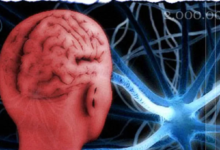A New Pathway Linking Exercise to Appetite Control: U.S. Researchers Identify Key Hunger-Suppressing Compound

A team of researchers in the United States has discovered that a chemical compound produced naturally in the body during physical exercise can suppress hunger by acting directly on the brain.
The collaborative study, conducted by scientists from several American institutions—including Stanford University School of Medicine and the Dan Duncan Neurological Research Institute in Texas—revealed that a compound known as Lac-Phe plays a critical role in reducing appetite during exercise. According to the researchers, Lac-Phe influences specific neurons in the brain responsible for regulating hunger, offering promising insights into future obesity treatments.
Published in Nature Metabolism, the study demonstrated through a series of experiments on laboratory mice that physical exertion decreases appetite and contributes to weight loss. The findings strengthen the scientific understanding of how exercise impacts metabolic processes beyond simply increasing energy expenditure.
Dr. Yang He, an assistant professor specializing in neurobiology at the Dan Duncan Institute, explained that regular exercise is widely recognized as an effective method for weight loss and for preventing obesity-related diseases such as diabetes and cardiovascular conditions. Speaking to SciTechDaily, he noted, “Exercise increases the amount of energy the body burns, but there are likely additional mechanisms contributing to weight loss as well.”
Dr. He emphasized that the research team focused on how the brain regulates appetite and feeding behavior: “We found that Lac-Phe plays a meaningful role in supporting individuals who need help losing weight.”
The study uncovered that Lac-Phe directly targets AgRP neurons in the hypothalamus—neurons known for triggering hunger sensations. By suppressing the activity of these cells, Lac-Phe allows another set of neurons, known as PVH neurons, to become active, promoting a sensation of fullness.
Although the research was conducted on mice, the findings offer promising implications for humans. The scientists stress, however, that more research is needed to fully understand the role of Lac-Phe in metabolic conditions such as obesity and undernutrition, as well as its broader influence on hunger regulation. These insights could eventually pave the way for new therapeutic solutions that harness the body’s natural responses to exercise to support healthier weight management.








